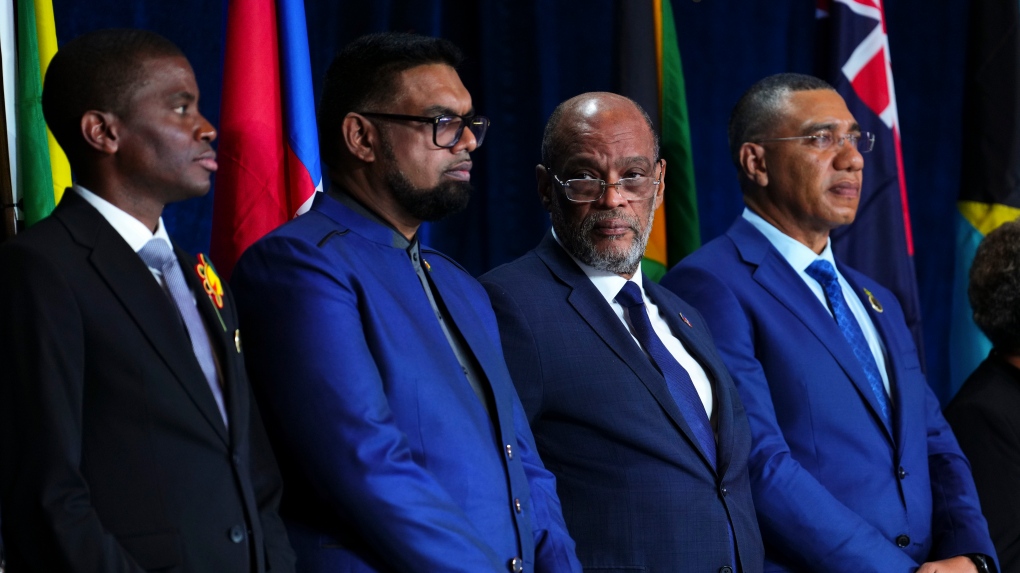
GEORGETOWN, GUYANA – Top officials from Canada, the U.S. and Haiti met Wednesday behind closed doors to talk about the spiralling chaos in Haiti, a topic expected to dominate an annual Caribbean trade bloc meeting that opened in the Bahamas.
The three-day Caricom meeting began Wednesday night, with host Philip Davis, the Bahamian prime minister, welcoming leaders of the 15-member bloc and others, including Haitian Prime Minister Ariel Henry, Canadian Prime Minister Justin Trudeau and Brian Nichols, the U.S. assistant secretary of state for Western Hemisphere affairs.
Also attending are Haiti’s foreign affairs minister and the acting minister of justice and public security.
A day before the meeting, Davis said at a news conference that Caribbean leaders «do not have the resources to deal with the Haiti problem ourselves, and we do need outside help. And we are looking to the north, Canada and the United States, to come to the fold to help.»
Davis and other Caribbean leaders have complained about a surge in migrants that they say is straining the budgets of small islands struggling with the influx of hundreds of Haitians. The vast majority are fleeing deepening poverty and a spike in violence, with killings, kidnappings and rapes rising as gangs grow more powerful following the July 2021 assassination of President Jovenel Moise.
At the meeting’s opening, Davis said Haiti needs urgent attention as conditions there deteriorate.
«I pray that we can agree on a series of concrete steps to help move towards a solution for the Haitian people and the region as a whole. We have learnt that inaction has its own costs and consequences,» he told the other leaders.
Trudeau’s entourage said the trip would allow leaders to consider political, security and humanitarian assistance for Haitians and «Haitian-led solutions to the current situation.»
Emmanuel Dubourg, the only Canadian member of Parliament of Haitian origin, said the Canada’s government is «discussing all kinds of options to help people in Haiti.»
The Caricom meeting comes as Haiti’s prime minister continues to seek the deployment of foreign troops, a request made in October that the U.N. Security Council has not acted upon.
The U.S. and Canada, along with other countries, have sent military equipment and other resources to Haiti’s National Police, but have not pledged troops to the dismay and frustration of some.
Henry, Haiti’s prime minister, tweeted that he and Nichols had «an important work meeting» Wednesday morning, but he did not provide details.
The Caricom meeting will continue until Friday, with leaders also expected to talk about food security, climate change and other issues affecting the region.
Other officials attending the meeting include the U.S. special presidential envoy for the climate, John Kerry.
«Caribbean governments are looking for action, and it will be important that the United States delivers in what is expected to be a pivotal year for the relationship,» Wazim Mowla, associate director and lead of the Caribbean Initiative at the Atlantic Council, wrote in a recent essay. «With the challenges the region faces, the Caribbean no longer has time to wait on the United States for action — and the United States can’t keep putting it off.»